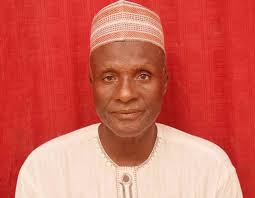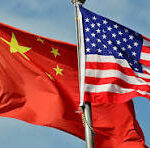“The global subalterns have lost an icon; the anti-imperialist bloc has been bereaved of a dependable ally. And above all, the greatest losers are Cubans born and raised under his revolutionary watch and benevolence, the oldest generation among them are in their early sixties”.
BY AMINU HABIBU JAHUN

For the Nigerian friends of Cuba, and the Nigerian diplomatic community, 18th September 2025 was a special day. On that date, all Abuja highways led to Monaliza Event Centre, to honour the invitation of Comrade Miriam Morales Palmero, the Cuban Ambassador to Nigeria, to commemorate the centenary of Commander in Chief Fidel Castro Ruz. Former president Olusegun Obasanjo, a long time associate and friend of Fidel, delivered the address on the occasion.
This piece discusses four issues: who was Fidel Castro Ruz, whose centenary was celebrated? Why did his death generate global hysteria? Doesn’t he deserve a higher posthumous honour than the one his centenary celebrated? And what has happened to the world since his passage nine years ago?
Who was Fidel Castro Ruz? One might respond: who doesn’t know Fidel? But to define him exclusively by place of birth and parental ancestry, is to reduce the Marxist revolutionary and unrepentant anti imperialist crusader to a level below his stature.
Fidel was more than a Latin American persona and statesman. He belonged to the global liberatory forces fighting colonial and neocolonial bondage, unusually propping the international working classes and peasant fraternities opposed to international capital and its local allies.
Fidel wasn’t only an anchor to the oppressed; he was dreaded by the Eisenhowers, Kennedys, Johnsons, the Bushs, Lanskys, Lucianos, etc. To presidents Eisenhower, Kennedy, etc, and Yankee imperialism, Fidel had to be neutralised. His socialist internationalism mustn’t be allowed in South America.
Fidel’s recruitment of Che Guavera, an Argentine medical doctor and Marxist activist, as a military strategist to the 26th July Movement who played a leading role in the revolutionary government underscored his internationalist mindset.
With Che around, it was feared, Fidel could recruit like minded revolutionaries from other nations; with Che as his revolutionary sidekick, there was an apprehension, Fidel could export the Revolution to other Latin American nations in bondage and beyond, making the duo a must eliminatible pair.
In 1966, imperialist fears were confirmed, Che set off to export the Revolution to Bolivia. And a year later the counter fears of the global revolutionary community were reinforced: with the connivance of the CIA, Che was murdered in Bolivia. But despite multiple attempts to eliminate Fidel, the cat with 9 lives outsmarted them. Forty-one years after Che’s assassination, Fidel forged ahead with the Revolution, before passing the button in 2008 to his brother Raul.
Since 1953, Castro had been the embodiment and expression of Jose Marti, his Cuban hero and the 1895 founder of the Cuban Revolutionary Party, from whom he drew revolutionary inspiration. From Marx, Engels and Lenin, the theoretical arrowheads of scientific socialism, Fidel reaffirmed his ideological convictions; and from Lenin, Stalin, Mao – the trio that breathed life into scientific socialism, Fidel came to grips with the challenges of establishing a novel political system in a hostile global order.
Comrade Fidel wasn’t cut for humdrum roles, unrelated to exiting peoples from exploitative bondages. He was a great soul for great historic tasks, heroically demonstrated on 26th July 1953. On that date, he led a 160 squad of revolutionary zealots to attack the Moncada Barracks in Santiago de Cuba, regarded as a direct assault on Fulgencio Batista, the Cuban dictator and lackey of Yankee imperialism.
Only committed revolutionists could attack the ferocious Batista regime, and after capture refused to plea for clemency, putting up a historic “History Will Absolve Me” defense.
For the half decade he was in power-1959 to 2008 – Fidel wasn’t only an embodiment of courage and perseverance, unparallel defiance to imperialism, unmindful of its backlash, he was an apostle of South South cooperation and socialist brotherhood – attributes that opened the floodgates of wails and euphoria upon his passage.
Why did Fidel’s death induce global hysteria? It is only the death of those whose lives were impactful that people are hysterical about. Fidel’s impactful revolutionary life made global hysteria inevitable on his demise.
Fidel couldn’t have risked his life and those of his closest comrades without a great cause. Fidel brought forth an unheard-of package in the Western hemisphere: the “Castro Package”, the dividends of 1959. In Cuba, it included nationalisation of industries, agrarian and land reforms, free health care and education, gainful employment for all fit Cubans, etc.
Externally, the package provided an unapologetic socialist assistance to nations sharing Cuba’s pre 1959 destiny, and broader commitment to South South cooperation, facilitating educational, military and technical aid to nations fighting colonial and neocolonial domination.
Since the Castro package replaced despair with hope, and transformed enslaved Cubans into free citizens, and accelerated the demise of colonial empires, why shouldn’t its beneficiaries be hysterical about the death of the leader of 26th July Movement, and the architect of 1959?
Fidel’s commitment to socialist internationalism and South South brotherhood, made Cuban educational, health, military and technical diplomacy a topical issue in the 70s and 80s.
Nigerians recall Castro’s health and medical diplomacy: Cuban medical squads were around offering free medical services in the country.
Cuban military advisers and soldiers offered invaluable assistance to MPLA paving way for its eventual victory against American and South African backed UNITA. As it was in Angola, so was it in Cape Verde, Guinea Bissau, etc. Mozambicans wouldn’t forget Cuban military assistance to FRELIMO against the RENAMO rebels. If Angolans, Mozambicans, Cape Verde and Guinean citizens have been hysterical about the death of Fidel, it is because they are as bereaved as the Cubans by his death.
Fidel’s admirers and friends are euphoric that despite hundreds of unsuccessful attempts to assassinate him, he wasn’t gunned down by the assassin’s bullet; or through poisoned cigars, milkshake, infected diving suits or exploding seashells, etc. He died a natural death.
And since they couldn’t eliminate him to reverse the Revolution, his powerful foes were joyfully hysterical that finally, the impregnable revolutionary of Havana breathed his last breathe on 5th November 2016. For them, it was a good riddance.
After stepping aside in 2008, the United States was spared his annual lengthy denunciation of its domestic and foreign policies in United Nations General Assemblies. In the history of the United Nations, no other country was subjected to severest criticism than Fidel’s over 4 hour denunciation of the United States during the 872nd session of the United Nations General Assembly in 1960.
The universal hysteria by millions of his admirers and friends underscore the need for a befitting global recognition. Fidel served not only Cuba and Latin America, he served humanity, entitling him to a higher global honour, such as the Grand Commander of Global Revolutionary Forces liberating humanity from class, racial and national oppression.
What of the world he left behind? To the chagrin of his powerful foes, Castro’s death didn’t slow down the Revolution, he bequeathed a revolutionary fortress continuing the great tasks he set for the Revolution in 1959. His relentless advocacy for the Non-Aligned Nations bloc wasn’t in vain. The BRICS could be the actualisation of that dream.
After leaving a United States led unipolar world, global geopolitical dynamics, and imperialist overkill dangerously moved the world nearer the brink of nuclear war, but not as dangerously as during the 1962 US-Soviet confrontation. Russia along with China, and two of president Bush Jnr’s two axis of evil States North Korea and Iran and a few other states are posing a challenge to America’s global hegemony. And the Middle East is dangerously imperilled by the United States and Israel and the Palestinian cause dear to him, has never been ruined as now.
It wasn’t only Chief Olusegun Obasanjo, or Hugo Chavez, who painfully lost a friend. The global subalterns have lost an icon; the anti-imperialist bloc has been bereaved of a dependable ally. And above all, the greatest losers are Cubans born and raised under his revolutionary watch and benevolence, the oldest generation among them are in their early sixties.
Finally, Comrade Fidel Castro Ruz, the Commander in Chief is gone, but isn’t forgotten by his friends and foes. His revolutionary legacy is memorable to the former, and a nightmare to the latter.
…Jahun, a public affairs analyst writes from Dutse, the Jigawa State Capital.










